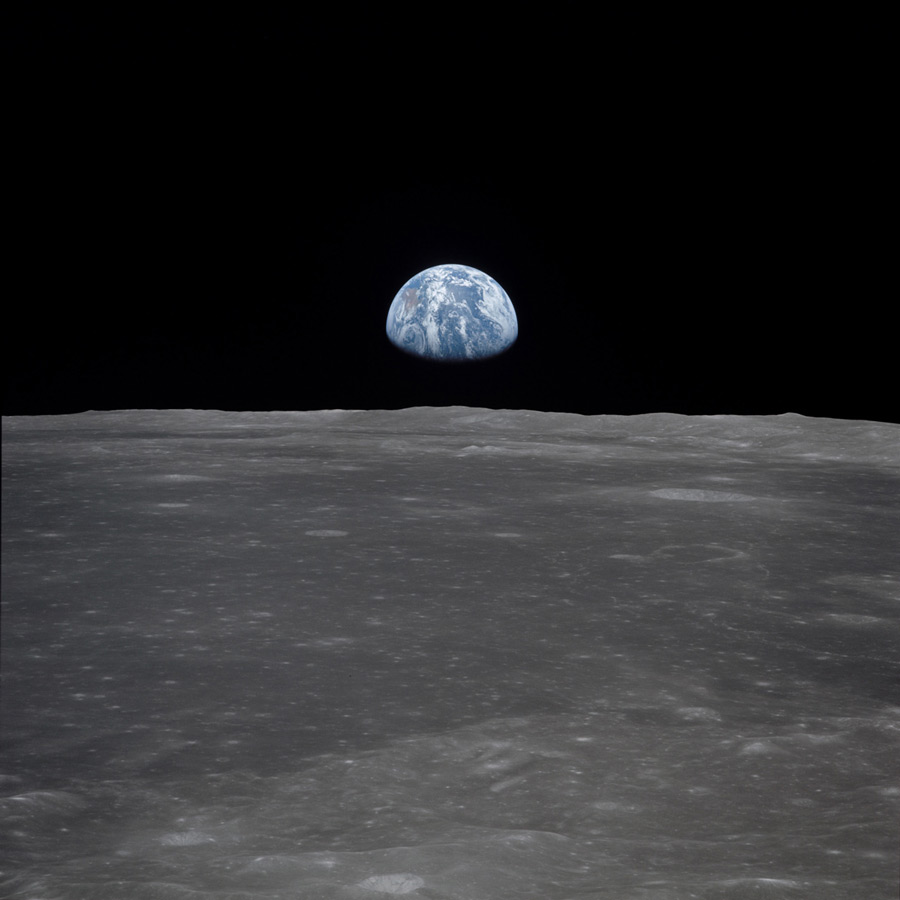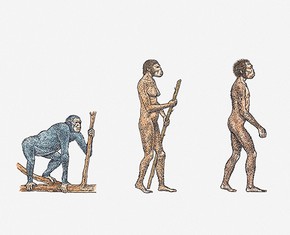The views expressed in our content reflect individual perspectives and do not represent the authoritative views of the Baha'i Faith.
The world, this physical place we know as planet Earth, is 4.5 billion years old—at least as far as our scientists can tell.
Our planet is made up of a molten core that cools as it reaches its outside edges. It has thousands of land masses and bodies of water, some fresh, some salt. It is warmed by our nearest star, the sun, whose rays and heat still reach us even though it is 93 million miles away.
The land masses on Earth, even islands that had their start as volcanoes, range from below sea level to 109 mountains rising above 23,000 feet in height. The deepest ocean, part of the Mariana Trench in the Pacific, is over 36,000 feet deep. This planet has a circumference of almost 25,000 miles, surrounded by five envelopes of atmosphere 300 miles thick. The weather of rain, snow and ice, and heat from the sun, driven by wind, together with natural occurrences such as earthquakes and hurricanes, tsunamis and volcanoes and more, create an often unpredictable surface environment—but one that has supported life for millions of years.
Life in this world teems, with species not yet discovered and many gone extinct. It begins with microbes and bacteria and expands to plants and growing things. Add insects which are the most populous life form, then expand to animals and finally to humankind, the highest, most evolved form of life on this planet:
Then God said, “Let us make man in our image, after our likeness. And let them have dominion over the fish of the sea and over the birds of the heavens and over the livestock and over all the earth and over every creeping thing that creeps on the earth.” – Genesis 1:26
This world is also men, women and children numbering around 7.5 billion bodies and souls. This total will likely rise to somewhere around 11 billion by the year 2100.
Humankind, through its intelligence and introspective powers, discovers the realities of creation and is able to overcome the limitations imposed on other creatures. We sail atop the seas, travel in airplanes, live in inhospitable climes, and walk or drive electric, natural gas or gasoline-powered vehicles across the terrain. Twelve men have walked on the moon, and we have landed multiple crafts on Mars, over 33 million miles away—the latest one just a few days ago.
Humanity uses the rich resources of the planet, its minerals, it plants, its animals and more as it wishes.
The goals of all human inventions have been to essentially please other humans, usually for gain or profit. Most inventions have aided humanity to solve a problem, make a task easier, or benefit progress. But many have not—they have hurt, maimed and killed us in the hundreds of millions when weapons were wielded by one human against another, or one army against another, all done for the dominance over a plot of land.
Who will save the world from us?
The Earth has now grown tired of humanity’s excesses, and is showing its displeasure. Humanity has raped its resources and used and abused its lands, seas, plants, birds and animals:
The Lord God took the man and put him in the garden of Eden to work it and keep it. — Genesis 2:15
 The argument for stewarding the Earth’s resources instead of squandering them is old, but we have not yet learned the lesson as a race. Consumption and the competition for economic dominance have dictated personal, group, and every other type of thinking. Pockets of informed, diligent people at many levels in government and organizations are trying to pull the reins in on such philosophies. It is now a race to save the planet itself from catastrophic man-made disasters on a never-before-seen scale. What will it take?
The argument for stewarding the Earth’s resources instead of squandering them is old, but we have not yet learned the lesson as a race. Consumption and the competition for economic dominance have dictated personal, group, and every other type of thinking. Pockets of informed, diligent people at many levels in government and organizations are trying to pull the reins in on such philosophies. It is now a race to save the planet itself from catastrophic man-made disasters on a never-before-seen scale. What will it take?
It will take stewardship and conservation. Stewardship is using the Earth and everything on it wisely and fairly. Conservation is NOT using what otherwise might be available. The old energy conservation bon mot comes to mind: The best kilowatt-hour is the one not used.
Today many of us conserve because it saves money. This seems to be the biggest motivator in conservation efforts, whether public or private in nature. The push toward renewable energy sources like wind and solar took off when there were incentives and cash savings, not because they were morally and socially better for everyone.
But renewables aren’t enough to save us when we individually subscribe to materialistic, consumption-driven, wasteful and destructive everyday practices. The Baha’i teachings say:
… until material achievements, physical accomplishments and human virtues are reinforced by spiritual perfections, luminous qualities and characteristics of mercy, no fruit or result shall issue therefrom, nor will the happiness of the world of humanity, which is the ultimate aim, be attained. For although, on the one hand, material achievements and the development of the physical world produce prosperity, which exquisitely manifests its intended aims, on the other hand dangers, severe calamities and violent afflictions are imminent. – Abdu’l-Baha, Selections from the Writings of Abdu’l-Baha, pp. 283-284.
Based on even newer reports by scientists, governmental agencies and watchdog organizations, we have become our own worst enemy when we fail to preserve and care for this planet we inhabit. Man himself is responsible for the poor condition of the atmosphere, the rivers and streams, the oceans and the land. Man is also killing off species at an alarming rate.
Environmental goals are good, nay excellent, but the question remains: Will we have enough time to recover from the damage we’ve already done?
















Comments
Sign in or create an account
Continue with Googleor